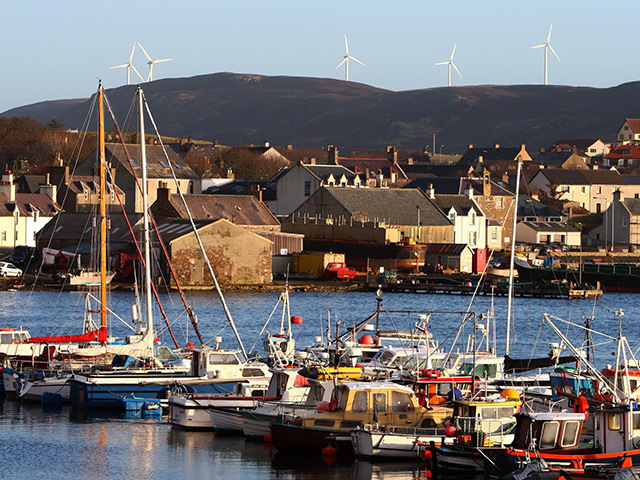
Three of Scotland’s most senior judges have paved the way for a massive windfarm to be built in the northern isles.
Their ruling on the 103-turbine Viking scheme followed a legal challenge from campaign group Sustainable Shetland – which objected to a Scottish Government decision to grant planning consent two years ago.
Yesterday, Lord Brodie delivered the judgment of the Inner House of the Court of Session, which upheld SNP ministers’ position.
Developer Viking Energy Partnership hailed the result as “vindication” of the decision-making process and said “we can now move on”.
Sustainable Shetland said it was “disappointed” with the outcome, but had not yet had enough time to digest the ruling or decide what its next course of action would be.
The judgment also had a wider significance in that the court found windfarm applicants do not need to have an electricity generating licence to secure planning permission.
An earlier ruling last September by Lady Clark of Calton, which set aside consent for the Viking project as incompetent, threw the renewables industry into a state of confusion.
At the time, she said only a licence holder or an applicant with an exemption under the terms of Section 36 of the 1989 Electricity Act could apply.
The judgment cast doubts over a number of green energy developments around the country which did not have a licence in place at the planning stage.
Lady Clark’s ruling also found that Scottish ministers did not take sufficient heed of the 2009 EU Wild Birds Directive, and specifically the impact on 290 breeding pairs of a rare wading bird, the whimbrel, on Shetland.
A Scottish Government spokesman welcomed yesterday’s judgment as confirmation that applications could still go ahead if developers did have a licence.
It also said it vindicated the decision-making process by ministers with regard to the impact on wild bird populations.
Responding to the judgment last night, Viking Energy Shetland chairman, Alan Bryce, said: “We believed the consent decision would stand up to the closest scrutiny and this outcome validates our position that this project can benefit the local and wider environment.
“The potential for substantial economic and environmental benefits for Shetland means that Viking Energy is in this for the long haul and we continue to look forward to advancing our plans to build what could become the world’s most productive windfarm and a crown jewel of Shetland’s economy.”
The Scottish Government spokesman said the judgement was a “positive outcome”.
He added: “This is welcome news for the renewables industry in Scotland.”
The government said the windfarm was expected to generate an annual income of £30million a year for the islands, including £20million for the Shetland Charitable Trust.
Sustainable Shetland vice-chairman, James Mackenzie, said the campaign group, which raised a six-figure sum to help fight its case, was “disappointed” by the court ruling.
However, he said it was too early to say what the next step might be.
“I haven’t studied the legal argument closely to say more, but our options now depend on the legal advice we are getting, and also on consulting our committee and our membership at large,” he said.